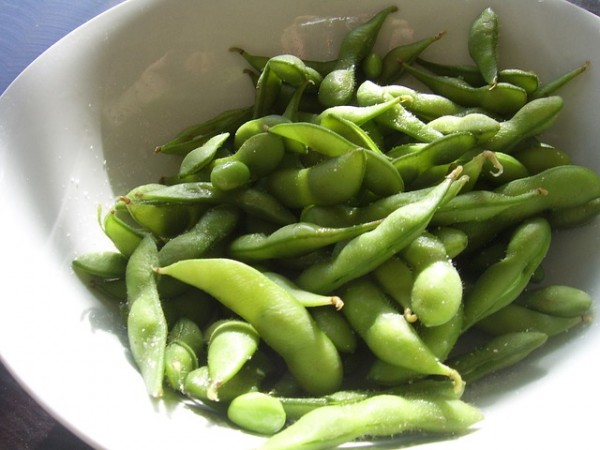Beans and Peas Help Reduce Bad Cholesterol

Eating a serving of beans once a day has been found to be associated with lower levels of "bad" cholesterol, according to a recent study.
The study, which was published in the Canadian Medical Association Journal, shows how a regular bean, pea, or lentil diet can lower levels of low-density lipoproteins (LDL) cholesterol, or "bad" cholesterol, while leaving "good" cholesterol levels largely unaffected.
Cholesterol isn't exactly "bad." It is an essential fat that supports the membranes of your body's cells. However, LDL cholesterol is the cholesterol that has the unfortunate tendency to deposit itself on the walls of arteries, encouraging the formation of plaque and leading to heart attack and even stroke, according to the American Association of Cardiology.
In a comprehensive review of data from 26 randomized-controlled studies, researchers from the U.S. and Canada analyzed the dietary habits of 1,037 healthy people. Researchers paid special attention to each person's regular legume consumption -- how much chickpeas, lentils, peas, and beans they regularly ate. Data on each participant's LDL cholesterol levels was considered at the start of the study and again six weeks later.
According to the results of the analysis, one serving of legumes a day resulted in an at-least five percent decrease in levels of LDL cholesterol. Interestingly, the beneficial effects of a heavy bean, pea, chickpea, or lentil diet were more noticeable in men. However, the benefits were positive enough among both men and women to allow researchers to recommend a legume diet for people suffering from high cholesterol.
In their concluding statements, the authors of the study argue that while they did not determine a cause-and-effect relationship with the results of their analysis, their results suggest that legumes "may have may have beneficial effects on other cardiometabolic risk factors, including body weight, blood pressure and glucose control."
Future studies, they write, will address how the beneficial nature of a legume-heavy diet directly influences risks of cardiovascular disease.
The study was published in the Canadian Medical Association Journal on April 7.
Apr 07, 2014 05:00 PM EDT





